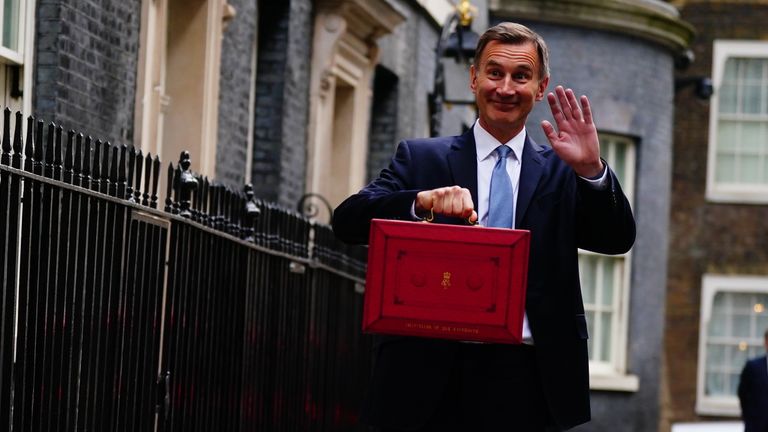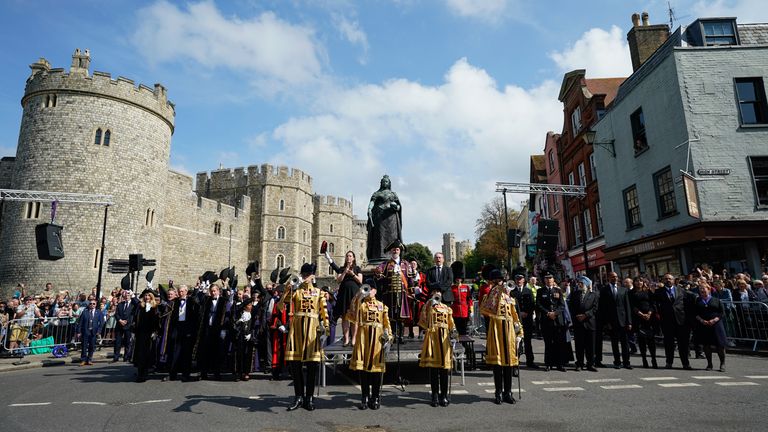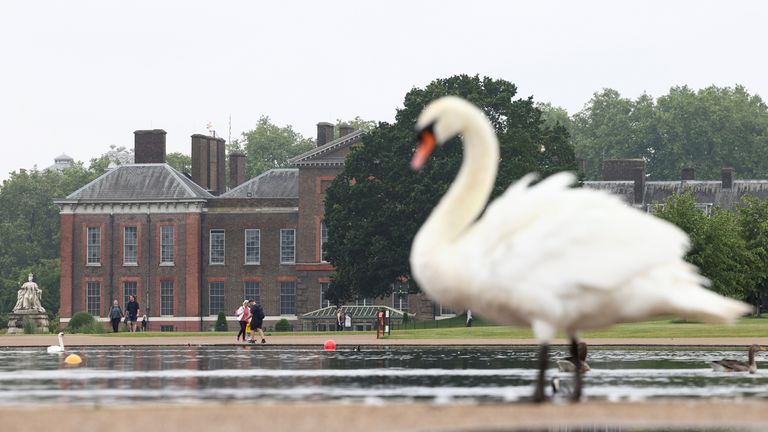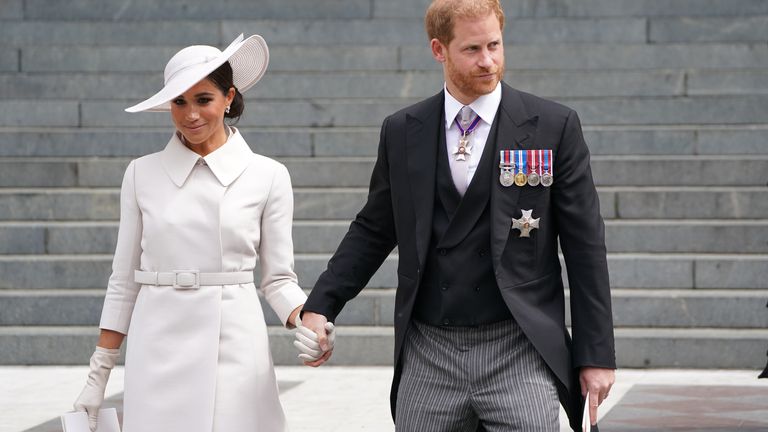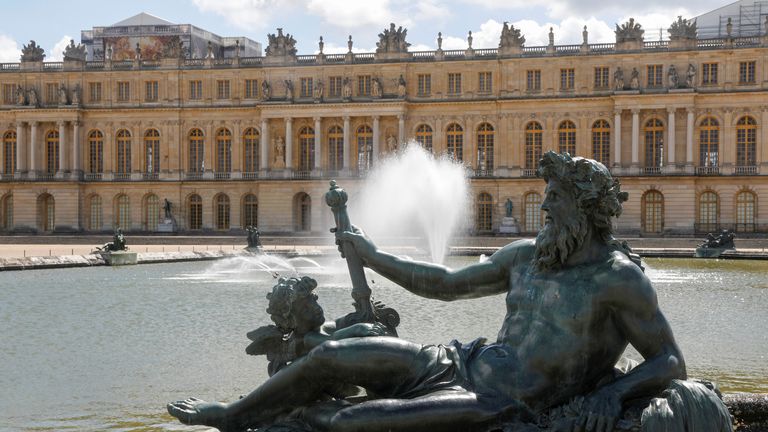Labour to oppose removing lifetime pensions allowance, calling it a ‘tax cut for the rich’ | Politics News
Labour has said it will oppose plans to abolish the lifetime pensions allowance, calling it a “tax cut for the rich”.
Shadow chancellor Rachel Reeves said the party will force a vote on the policy next week, predicting it could “unravel as quickly as it began”.
Ms Reeves compared it to Liz Truss’s doomed attempt to cut the 45p tax rate for the wealthiest 1% last year, which was scrapped following a widespread backlash.
She told ITV’s Robert Peston: “Labour will force a vote on this next week.
“I will say to Conservative MPs… whose side are you on? Are you on the side of ordinary working people in your constituencies who are seeing their taxes go up, or are you going to vote with Rishi Sunak and Jeremy Hunt for a tax cut for the wealthiest in society?
“That’s the wrong priority and I would urge Conservative MPs to do the right thing and vote with Labour next week.”
Chancellor Jeremy Hunt used his budget on Wednesday to announce the abolition of the lifetime pensions allowance.
It means people will be allowed to put aside as much as they can in their private scheme without being taxed – removing the £1.07m limit.
Mr Hunt will also increase the pensions annual tax-free allowance, from £40,000 to £60,000, under measures designed to increase the workforce by removing disincentives to being employed for longer.
The policies will cost the Treasury more than £1.1bn a year by 2027-28, with the aim of stopping an estimated 15,000 high earners – including senior NHS doctors – leaving the workforce.
But experts said that millions of savers will feel no impact from the changes, with Institute for Fiscal Studies (IFS) Director Paul Johnson saying they would “encourage a relatively small number of better-off workers to stay in the workforce a bit longer”.
Meanwhile, the Resolution Foundation warned the policies may actually cause some workers to retire early or use “their now uncapped pensions saving to avoid inheritance tax”.
Chief executive Torsten Bell said the measures are “hugely regressive and wasteful”, adding: “It’s a big victory for NHS consultants but poor value for money for Britain.”
Sir Keir Starmer, the Labour leader, also hit out at the plan, saying: “The only permanent tax cut in the budget is for the richest 1%. How can that happen?”
Budget at a glance
The pensions tax break was one of the headline announcements from Mr Hunt’s budget, alongside a pledge to introduce free childcare for children under three.
Some key policies were revealed ahead of the chancellor’s speech, including keeping the cap on energy prices at £2,500 for a further three months, despite a planned rise to £3,000 in April, and 12 new investment zones.
A number of other plans were unveiled by Mr Hunt, including:
• Bringing charges for prepayment meters in line with direct debit charges, impacting over four million households and saving them an average of £45 per year
• Making duty on draught products in pubs up to 11p lower than supermarkets
• Maintaining the freeze in fuel duty
Read more on the budget:
Tax calculator – see if you’re better off
Ed Conway: There’s a feel-bad factor coming, and this budget won’t help
Unions reacted angrily to a lack of measures on public sector pay, saying Mr Hunt “stuck up two fingers to workers’ with the budget”.
The announcement took place against the backdrop of an estimated half a million workers, including junior doctors, teachers and civil servants, walking out in disputes over pay, jobs and conditions.
Despite the promises of help with the cost of living, families still face a painful financial squeeze.
Living standards, based on real household disposable income per person, is expected to fall by a cumulative 5.7% over the two financial years 2022-23 and 2023-24 – less than forecast in November but still the largest since records began in 1956-57.
Mr Starmer said: “After 13 years of his government, our economy needed major surgery, but like millions across our country, this budget leaves us stuck in the waiting room with only a sticking plaster to hand.
“A country set on a path of managed decline, falling behind our competitors, the sick man of Europe once again.”

